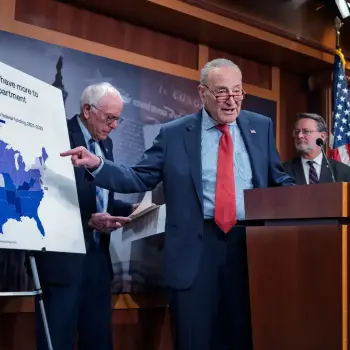Conspiracy theories abound in the news today. For example, why has President Joe Biden not spoken publicly since it was announced last Wednesday that he had contracted COVID-19?
- Did he have a stroke?
- Is he now in hospice care?
- Will the Oval Office address his plans for tonight prove such suspicions wrong?
- Or will skeptics see a brief address given from a teleprompter (if this is what he delivers) as a further cover-up of his alleged infirmities?
And what of Mr. Biden’s health across recent weeks, months, and even years? Numerous pundits are faulting Vice President Kamala Harris for participating in an “epic miscalculation” or even an elaborate cover-up of his purported failings.
Others have alleged conspiracies behind the July 13 attempted assassination of former President Donald Trump:
- Some claimed that President Biden “sent the orders,” while others called the attempt a “failed coup.”
- Still others “reported” that the Secret Service was ordered not to take out the gunman until after he fired on Mr. Trump.
- Elon Musk blamed the shooting on “extreme incompetence” or “deliberate” action by the Secret Service.
- Still others claimed the shooting was staged to benefit Mr. Trump politically.
Secret Service Director Kimberly Cheatle resigned yesterday after a contentious hearing with Congress on Monday. Will this lead to greater accountability, or is it part of the alleged cover-up?
“If words can mean anything”
Sociologist James Davison Hunter observes:
When the shared meaning of words is undermined, when we no longer trust that words signify what we thought, any meaning can be imputed to words. If words can mean anything, they have no intimate meaning or possibility of a common meaning.
This is the cultural crisis behind the political crises of our day. When all truth is personal and subjective, as postmodernists have claimed for decades, we are left with a “post-truth” society in which “your truth” is as valid as “my truth.” Now that social media has given everyone a platform to broadcast “their truth,” we should not be surprised by the confusion and chaos that surround nearly every consequential event of our day. The fake news circulating yesterday that former President Jimmy Carter had died is just one example.
However, there is good news in the bad news.
Scripture describes followers of Jesus as “the household of God, which is the church of the living God, a pillar and buttress of the truth” (1 Timothy 3:15, my emphasis). We can exercise this role because we serve the One who is “the truth” (John 14:6). By his power, we can know the truth (John 8:31–32) and proclaim the truth (2 Timothy 2:15).
But there’s a catch:
To experience fully the truth of Christ, we must experience fully the Christ who is truth.
Oswald Chambers noted:
The one marvelous secret of a holy life lies not in imitating Jesus, but in letting the perfections of Jesus manifest themselves in my mortal flesh. Sanctification is “Christ in you.” It is his wonderful life that is imparted to me in sanctification. . . .
Sanctification is not drawing from Jesus the power to be holy; it is drawing from Jesus the holiness that was manifested in him, and he manifests it in me. Sanctification is an impartation, not an imitation (his emphasis).
Think of it: the living Lord Jesus is literally living in you by his resident Spirit (Colossians 1:27; 1 Corinthians 3:16). As St. Ignatius of Antioch said, “You have Jesus Christ in yourselves.”
“The fragrance of the knowledge of him”
Jesus can guide us into the truth (John 16:13) and speak the truth through us (Luke 12:12). But first we must be “crucified with Christ” (Galatians 2:20), surrendering our life to him as a “living sacrifice” (Romans 12:1) and submitting to the “filling” and control of his Spirit (Ephesians 5:18).
Jesus promised his first followers, “You will receive power when the Holy Spirit has come upon you, and you will be my witnesses” (Acts 1:8). And so they were:
- When the early Christians were “filled” by the Spirit, they began to share the gospel miraculously (Acts 2:4).
- When Peter was “filled with the Holy Spirit,” he preached the gospel boldly to the religious authorities who arranged Jesus’ execution and could have done the same to him (Acts 4:8–12).
- When the early church prayed for courage in the face of persecution (Acts 4:29), “they were all filled with the Holy Spirit and continued to speak the word of God with boldness” (v. 31).
- After Paul was “filled with the Holy Spirit” (Acts 9:17), “immediately he proclaimed Jesus in the synagogues” (v. 20).
- When Barnabas, “a good man, full of the Holy Spirit and of faith” arrived in Antioch, “a great many people were added to the Lord” (Acts 11:24).
The pattern is clear. If we want to know “the truth,” we must know the One who is the truth by being submitted to his Spirit. If we do, we will make him known. Then we will glorify and serve the One who “through us spreads the fragrance of the knowledge of him everywhere” (2 Corinthians 2:14).
So, here’s the question: Have you submitted your life and witness to the Spirit of God yet today?
If not, why not?
A culture desperate for truth awaits your answer.
Wednesday news to know:
- Everything to know about the Olympics opening ceremony—as Jill Biden plans to lead American delegation
- Historians say Biden’s withdrawal shows American democracy is working
- Biden expected to meet Netanyahu on Thursday at White House, US official says
- Pilot only survivor of Nepal plane crash
- On this day in 1911: American archaeologist encounters Machu Picchu ruins
*Denison Forum does not necessarily endorse the views expressed in these stories.
Quote for the day:
“Where I found truth, there found I my God, who is the truth itself.” —St. Augustine












